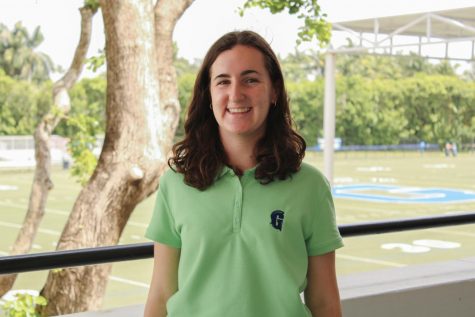Behind Schedule: Rearrangements Needed to Support Student-Athletes
Almost all student-athletes know the struggle: looking forward to a game day, but definitely not looking forward to the often massive amounts of make-up work that will inevitably come with it.
Athletes make up the majority of the student population — according to the school website, 60% of students participate in at least one sport. Early dismissals for athletics throughout the year result in many athletes having to leave school early on game days, of which there can be anywhere between one and four per week. This often forces student-athletes to miss end-of-day classes, and sometimes the same class multiple times in one week. While the situation is manageable for those having electives or Directed Study last period, those who find themselves scheduled with end-of-day core classes often grapple with detrimental impacts to their grades due to missing so much class time.
A potential solution would be to focus on making as many core, Honors, IB, and AP classes as possible available earlier in the day, and to organize schedules so that classes that are particularly difficult to miss, such as math and sciences classes, are scheduled before lunch periods. Courses that are typically easier to miss and make up, such as Directed Studies and electives, can be more conveniently scheduled last period.
Such changes would do a tremendous service to both the student-athlete population, trying to keep up with their classwork in addition to their sports careers, as well as end-of-day core subject teachers. As the hybrid status of school this year does not make being absent from class any easier, teachers face challenges not only in coordinating time for student-athletes to make up their work, but in ensuring that they can get an equal instruction of course material as those students who attended class.
“If [student-athletes] are missing class and falling behind, it’s frustrating on both parts,” said math teacher Susan Kaplan. “I definitely think that it would help if they could take their core classes in the morning so that they aren’t missing so much of their core classes, or given study hall at the end of the day. They really need to be in class to ask questions and get that additional support.”
The issue lies in the fact that a large number of core and high-level classes are offered during periods 4 and 8 at the end of the day, and some only offered during these times. The majority of early dismissals prevent student-athletes from attending these classes on game days. Below is a list of a sampling of the core and high-level classes offered during these periods.
• AP Government
• AP US History
• Algebra 2
• Calculus Honors
• Economics Honors
• Geometry
• IB HL Physics 1
• Pre-Calculus Honors
Undeniably, the capacity to handle an extra workload and the ability to manage time wisely are part of the conscious agreement student-athletes make when they choose to join sports teams. They must have the responsibility and proactivity to stay on top of their work — that’s a given. However, student-athletes’ classwork and academic performance shouldn’t have to be compromised when they miss class to represent their school in competition. The Athletic Department notably aims to raise the overall student-athlete GPA to a 3.5: scheduling that is more supportive of them and their teachers is one major way to do it.
New Dean of Academics and Curriculum Erika Velez commented on the issue, explaining that the reason for the complex scheduling this year is the use of the new automated platform, Veracross. Counselors can enter teacher recommendations and special requests, but the placement and order of courses is ultimately decided by the computer system. It would seem the Administration could work with its software scheduling team to address this issue.
Velez encourages student-athletes and other students facing scheduling difficulties to speak up about their needs to their teachers, parents, counselors, and other academic advocates. “The more information we can give the system, the better for you and the better for the school,” she said.

Kathleen Lewis is a senior serving her second year as the Editor-in-Chief of The Raider Voice. She started writing articles for the newspaper as a freshman,...










Anna • Apr 22, 2021 at 10:26 am
This is such an interesting take on a topic that has effected many students.